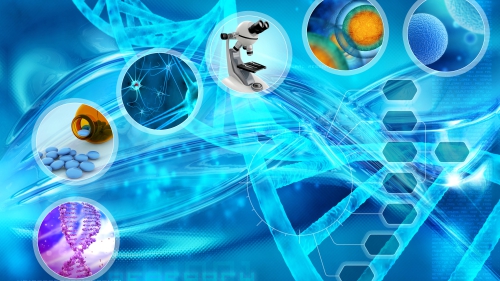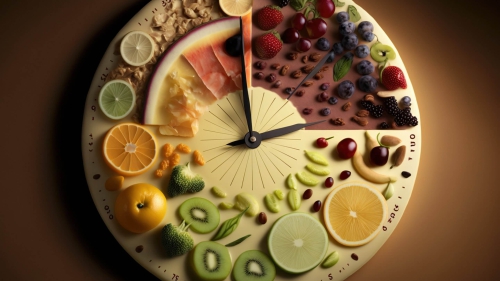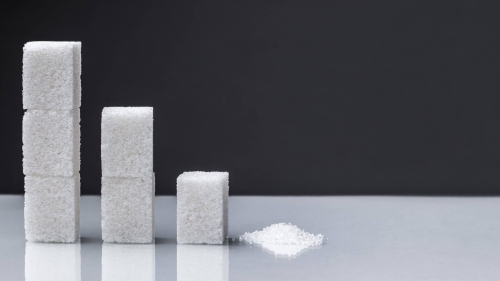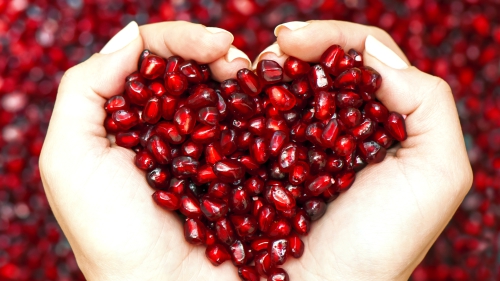Nootropics: Medicine for Your Mind

Numerous science fiction works have speculated about the possibility of enhancing your brainpower by merely taking a pill. Medications and supplements like these fall into the category of nootropics, which are colloquially known as “smart drugs” or “cognitive enhancers.” The term itself comes from the Greek noos (meaning “mind”) and trope (meaning “turning”). Coined by Corneliu Giurgea in the 1970s, nootropics describe substances used to enhance cerebral function.
Unsurprisingly, demand is substantial for products that boost one’s cognitive capabilities. In an article for Vox, Kaitlyn Tiffany reported that “[i]n 2013, the American Psychological Association estimated that grocery store ‘brain booster’ supplements and other cognitive enhancement products were already a $1 billion-a-year industry.” Despite this massive market, however, little is known about most so-called smart drugs. The majority of these products fall under the category of dietary supplements, meaning that they are not FDA approved, so consumers should exercise caution when purchasing them.
One commonly consumed nootropic is caffeine. While its ability to promote wakefulness is well known, some studies have shown that caffeine may provide other cognitive benefits as well. Tom M. McLellan et al. published a review in the journal Neuroscience & Biobehavioral Reviews that looked at how caffeine impacted physical and mental performance. The authors found that “across a wide array of circumstances, moderate doses of caffeine (approximately 32–300 mg…) improve vigilance, learning, and mood.” To put that amount into perspective, here are the estimated caffeine contents of some popular beverages (as cited in the aforementioned review):
| Beverage | Caffeine per Serving |
| Drip coffee | 90-150 mg |
| Instant coffee | 40-108 mg |
| Tea, brewed for 1 minute | 9-33 mg |
| Tea, brewed for 5 minutes | 20-50 mg |
| Iced tea | 22-36 mg |
Another nutrient with potentially mind-enhancing effects is L-theanine. L-theanine is an amino acid commonly found in tea, and its purported benefits range from promoting relaxation to improving sleep quality. A study by Shinsuke Hidese et al. in the journal Nutrients explored L-theanine’s impact on thirty test subjects given a 200 mg supplement of L-theanine daily for four weeks. The results were positive, demonstrating a decrease in symptoms related to stress, improved cognitive function, and fewer problems with sleep quality than the placebo group. Another study by Anna C. Nobre et al. published in the Asia Pacific Journal of Clinical Nutrition involved thirty-five participants, sixteen of which were given L-theanine. The authors found that “L-theanine enhanced the power in the alpha-1 frequency band…This increase in alpha-band activity supports a role for L-theanine in achieving a relaxed but alert mental state via a direct influence on the central nervous system.” To put it in simpler terms, consuming L-theanine calmed the participants without making them sleepy.
One study even looked at the possibility of cognitive improvements from combining caffeine and L-theanine. Both compounds are commonly found in green tea, a beverage that has long been heralded for its health benefits. The authors found evidence of improved cognitive performance arising from the combination of the two nutrients—most notably improved performance in attention-switching tasks. According to Gail N. Owen et al., “…although both caffeine and the L-theanine + caffeine combination improved response speed and accuracy, it was only the latter that improved them simultaneously.” Before you decide to go all-in on green tea, you should know that the doses of caffeine and L-theanine in this study were higher than that of a standard cup. Still, it might be worth trading your occasional coffee or black tea for a cup of green if you are looking for a minor cognitive boost.
There is substantial research demonstrating the cognitive benefits of certain chemicals, but what about supplements as a whole? One recent study by Christopher E. Zwilling et al. published in Scientific Reports shows some promise. The study examined the results of nutritional supplements on physical and cognitive performance among active-duty members of the United States Air Force. Participants were divided into two groups: those who exercised and took a supplement and those who exercised and took a placebo. While the participants who exercised but took a placebo did experience physical and mental improvements, individuals with the most progress were those that participated in the exercise portion and received a nutritional supplement. The authors found, “Relative to exercise training alone, the multimodal fitness and nutritional intervention further improved working memory (+9.0%), fluid intelligence reaction time (−7.7%), [and] processing efficiency (+1.8%).”
That said, more research still needs to be done before we can definitively say that nootropics are effective. Unfortunately, there is little evidence to back up many of the claims made by nootropic proponents. In an article for Time, Markham Heid notes that supplements containing ingredients like omega-3 fatty acids and flavonoids, which do have the potential to improve cognitive function when consumed through food, have not been proven to have much impact when taken in supplemental form. Heid cites a 2015 review of nutrients, dietary supplements, and vitamins in the Canadian Geriatrics Journal that indicated “no convincing evidence of benefit for any of the nutritional interventions included in this review.” Therefore, your best bet for increasing your omega-3 consumption is to add foods such as fish, nuts, and seeds to your diet.
Even common nootropics should be carefully monitored for potential interactions with other medications. According to WebMD, creatine, one type of nootropic, can interact negatively with certain anti-inflammatory drugs, diabetes medications, and diuretics. Ginkgo biloba also comes with risks for certain people. In an article by Dana Kantrowitz for UMiami Health News, Registered Dietitian/Nutritionist and Board-Certified Sports Dietitian Jason Stevenson discusses how it can be dangerous for those susceptible to strokes or brain bleeds and those on blood thinners.
Some prescription medications have gained popularity as nootropics as well. Dextroamphetamine and amphetamine (commonly known as Adderall) and methylphenidate (commonly known as Ritalin) are used to help patients with attention-deficit/hyperactivity disorder (ADHD). Modafinil and armodafinil have also gained popularity in this space for their ability to promote wakefulness, which is essential in treating individuals with narcolepsy or other sleep disorders. The issue with prescription nootropics is that they have a high potential for abuse. While these medications can be life-changing for people with the diseases they treat, they are not approved for people seeking a mental boost and should not be used without a doctor’s approval.
Nootropic supplements are not the only way to boost your cognitive capabilities. Getting enough sleep can make sure that you feel alert when completing daily tasks, and eating a well-balanced diet can help you naturally consume the nutrients found in many supplements. Regular exercise is another valuable tool since various studies have demonstrated the relationship between exercise and the brain. If you decide nootropics are the way to go, make sure you talk to your doctor before starting a regimen. Your mind will thank you.
Some IFANCA Halal-Certified Nootropics
| Brand | Product |
| 4Life® | Transfer Factor ReCall® |
| Arbonne® | Arbonne Essentials® Energy Fizz Sticks - Pomegranate |
| Country Life® | L-Tyrosine Caps |
| Forever Living Products® (Aloe Vera of America) | Forever Focus™ |
| Herbalife® | N-R-G Tea |
| Solgar® | Standardized • Full Potency™ Gingko Biloba Leaf Extract Vegetable Capsules |
| Sunrider® USA | Top® |
Alison DeGuide is a content developer at IFANCA as well as the editor of Halal Consumer© magazine. She holds a master’s degree in public diplomacy from the University of Southern California where she also did her undergraduate studies.
Reprinted from the Winter 2020 issue of Halal Consumer© magazine with permission from the Islamic Food and Nutrition Council of America (IFANCA®) and Halal Consumer© magazine.

















